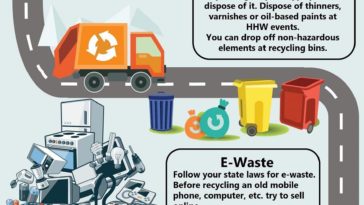The Progression Of Dumpster Rental: A Historical Perspective, Contemporary Practices, And Arising Trends
The Progression Of Dumpster Rental: A Historical Perspective, Contemporary Practices, And Arising Trends
Blog Article
Authored By- dumpsters near me for rent
As you consider the evolution of dumpster leasing, take into consideration how each age has added to forming the waste administration landscape we browse today. From humble beginnings in the 1930s to the advanced modern technologies of the here and now, the journey of dumpster rental has been noted by development and adjustment. But what lies on the perspective for this necessary solution? The future trends in sustainable techniques hold the trick to unlocking an extra efficient and eco-conscious approach to waste monitoring. Keep tuned to uncover exactly how the dumpster rental industry is poised to accept a greener tomorrow.
Historical Origins of Dumpster Rental
Explore the beginnings of dumpster rental and just how it has actually shaped waste administration methods in time.
Dumpster rental traces back to the 1930s when George Roby Dempster, a Tennessee entrepreneur, invented the Dempster-Dumpster. This pivotal creation reinvented garbage disposal by supplying an assigned container for collecting and moving trash successfully. At first utilized for building websites, the idea rapidly expanded to residential and business setups, resulting in the establishment of the very first dumpster rental services in the 1960s.
For many years, dumpster leasing has actually considerably affected waste management methods by promoting benefit, sustainability, and company. The ability to streamline waste in devoted containers enhances collection procedures, reduces littering, and boosts reusing initiatives. Additionally, dumpster service motivates people and services to take on responsible garbage disposal behaviors, adding to cleaner atmospheres and lowered ecological influence.
Modern Innovations in Waste Monitoring
Incorporating sophisticated innovations and lasting practices has actually reinvented waste management in recent times, boosting performance and ecological effect. One considerable innovation is using clever waste management systems that use sensors to keep track of waste levels in real-time, enhancing collection routes and schedules. These systems help in reducing unneeded pickups, reducing fuel intake and discharges.
https://www.prunderground.com/new-study-from-priority-dumpster-rental-west-bloomfield-reveals-average-number-of-dumpster-rentals-each-month-in-the-united-states/00293306/ is the implementation of waste-to-energy centers, where non-recyclable waste is converted into power via processes like incineration or anaerobic food digestion. This not just reduces the quantity of waste destined for landfills yet also generates renewable resource.
Moreover, the intro of single-stream recycling has streamlined the recycling process for consumers, bring about higher involvement prices and increased diversion from landfills. Additionally, improvements in composting technologies have made natural waste management a lot more effective, turning food scraps and yard waste into important compost for agricultural use.
Anticipated Trends in Sustainable Practices
Lasting waste administration techniques are advancing swiftly to fulfill the boosting demands for ecological obligation and source performance. As you look to the future, several essential fads are anticipated to shape the industry. One major focus will be on minimizing waste generation via far better item design and product packaging. Firms will progressively adopt circular economic situation principles, aiming to decrease waste and make the most of the life-span of products.
An additional pattern to watch for is the surge of sophisticated recycling innovations. Technologies in chemical recycling and pyrolysis are expected to provide new solutions for handling facility or infected waste streams that traditional recycling methods struggle to refine effectively. These modern technologies have the possible to revolutionize just how we handle waste, turning difficult-to-recycle products into important resources.
In addition, expect to see a greater emphasis on natural waste diversion. Composting programs and anaerobic food digestion centers will certainly become extra extensive as communities strive to reduce the quantity of raw material sent out to garbage dumps. By investing in these lasting methods, we can relocate in the direction of an extra circular and resource-efficient waste management system.
Final thought
To conclude, dumpster leasing has come a long way since its inception in the 1930s. From its simple starts on construction sites to its prevalent usage in residential and business settings, the industry has continuously advanced to satisfy the altering needs of waste management.
With the intro of modern-day innovations and a concentrate on lasting methods, the future of dumpster rental looks promising, with a solid focus on efficiency, ecological duty, and development.
